Belgian Malinois are hardworking and athletic dogs that require a balanced and nutritious diet to maintain their health and energy levels. Proper nutrition is essential for keeping them in top physical condition and ensuring that they have the stamina to perform their duties, whether that be herding, guarding, or serving as a police or military K9. Discover what should Belgian Malinois eat to stay at their best.
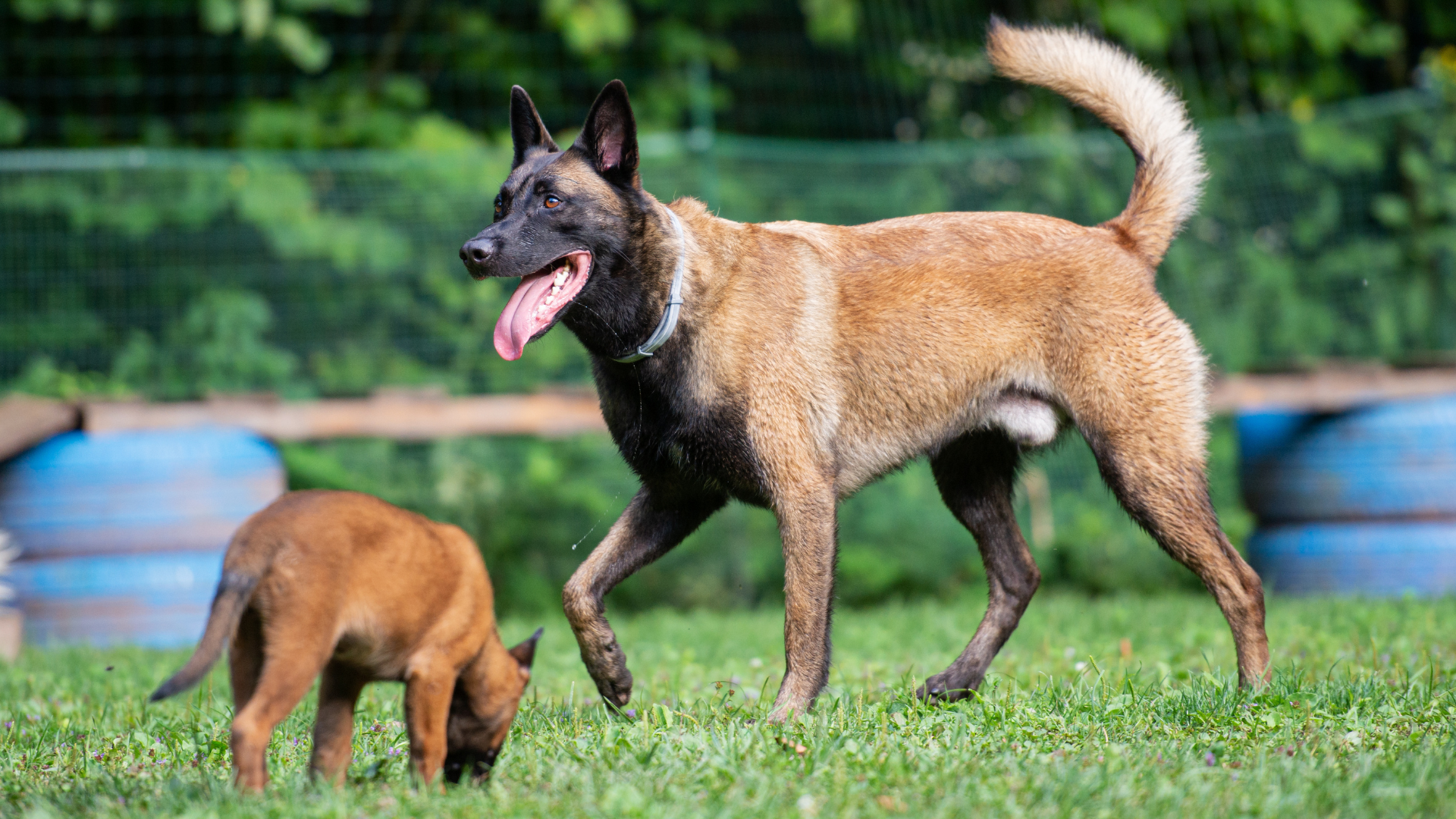
Understanding the nutritional needs of Belgian Malinois is crucial to providing them with the right diet. Factors such as their age, weight, activity level, and overall health must be taken into account when choosing the appropriate food for them. In addition, incorporating fruits, vegetables, and grains into their diet can provide them with essential vitamins and minerals that are not found in meat-based diets alone.
Choosing the right food for a Belgian Malinois is not always straightforward. With so many options available on the market, it can be challenging to determine which one is best for your dog. Factors such as the quality of ingredients, macronutrient ratios, and the presence of additives and fillers must be considered. Additionally, transitioning your Belgian Malinois to a new diet must be done gradually to avoid gastrointestinal upset.
Key Takeaways
- Understanding the nutritional needs of Belgian Malinois is crucial to providing them with the right diet.
- Choosing the right food for a Belgian Malinois requires considering factors such as age, weight, activity level, and overall health.
- Incorporating fruits, vegetables, and grains into their diet can provide essential vitamins and minerals.

Understanding the Nutritional Needs of a Belgian Malinois
Belgian Malinois is a highly active breed that requires a balanced and nutritious diet to maintain its energy levels. A balanced diet for a Belgian Malinois should contain the right amount of protein, fat, vitamins, and minerals to support their activity level and overall health.
Protein Requirement
Protein is an essential nutrient for a Belgian Malinois as it helps build and repair muscle tissue. A diet that is high in protein is necessary for a Belgian Malinois to maintain an active lifestyle. According to the Association of American Feed Control Officials (AAFCO), Belgian Malinois requires a minimum of 22% protein in their diet. However, some experts recommend a diet that contains at least 30% protein to support their energy levels.
Fat Requirement
Fat is also an important nutrient for Belgian Malinois as it provides them with the energy they need to stay active. A diet that is high in fat is recommended for Belgian Malinois to maintain their energy levels. According to AAFCO, Belgian Malinois requires a minimum of 8% fat in their diet. However, some experts recommend a diet that contains at least 18% fat to support their activity levels.
Vitamin and Mineral Requirement
Belgian Malinois also require vitamins and minerals to maintain their overall health. A balanced diet that contains the right amount of vitamins and minerals is necessary for a Belgian Malinois to stay healthy. Some of the essential vitamins and minerals that a Belgian Malinois requires include Vitamin A, Vitamin D, Calcium, and Phosphorus.
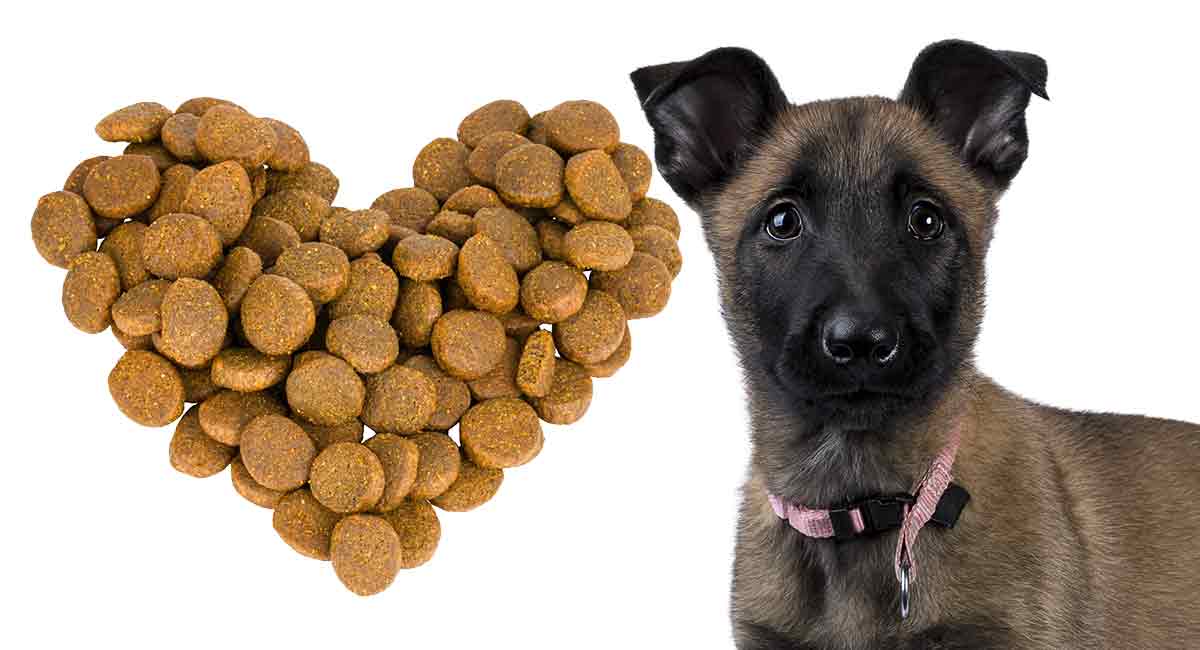
In conclusion, Belgian Malinois requires a balanced and nutritious diet to maintain their activity levels and overall health. A diet that contains the right amount of protein, fat, vitamins, and minerals is necessary for a Belgian Malinois to stay healthy. It is important to consult with a veterinarian to determine the nutritional needs of your Belgian Malinois based on their activity level and overall health.
Feeding Belgian Malinois at Different Life Stages
Belgian Malinois require a balanced and nutritious diet to maintain their high energy levels and overall health. The amount and frequency of feeding depends on the dog's life stage, size, weight, and activity level. Here are some guidelines for feeding Belgian Malinois at different life stages:
Feeding a Belgian Malinois Puppy
Belgian Malinois puppies grow rapidly and require a diet that supports their growth and development. It is recommended to feed them small meals throughout the day instead of one or two large meals. Here are some feeding guidelines for Belgian Malinois puppies:
- Feed puppies 3 to 4 times a day until they are 6 months old
- Gradually increase the amount of food as the puppy grows
- Feed a high-quality puppy food that is rich in protein and fat
- Avoid feeding table scraps or human food
- Provide fresh water at all times
Feeding an Adult Belgian Malinois
Adult Belgian Malinois require a balanced diet that provides them with the necessary nutrients to maintain their energy levels and overall health. Here are some feeding guidelines for adult Belgian Malinois:
- Feed twice a day, preferably at the same time every day
- Divide the daily food intake into two equal meals
- Feed a high-quality dog food that is appropriate for their size and activity level
- Avoid feeding table scraps or human food
- Provide fresh water at all times
Feeding a Senior Belgian Malinois
Senior Belgian Malinoiss have different nutritional requirements than puppies or adult dogs. They require a diet that is lower in calories and fat but still provides them with the necessary nutrients to maintain their health. Here are some feeding guidelines for senior Belgian Malinois:
- Feed twice a day, preferably at the same time every day
- Divide the daily food intake into two equal meals
- Feed a senior dog food that is appropriate for their size and activity level
- Avoid feeding table scraps or human food
- Provide fresh water at all times
In conclusion, feeding Belgian Malinois at different life stages requires a balanced and nutritious diet that is appropriate for their size, weight, and activity level. It is important to feed them at regular intervals and avoid overfeeding or underfeeding. By following these guidelines, you can ensure that your Belgian Malinois stays healthy and happy throughout their life. Please add here my exact focus keywords What Should Belgian Malinois Eat?
Choosing the Right Food for Belgian Malinois
Belgian Malinoiss are large-breed working dogs that require a high-quality diet to maintain their energy levels and overall health. It is important to choose the right food that provides them with all the necessary nutrients they need to thrive. Here are some things to consider when choosing the right food for your Belgian Malinois:
Dry Dog Food
Dry dog food, also known as kibble, is a popular choice for many dog owners. It is convenient, easy to store, and has a long shelf life. When choosing a dry dog food for your Belgian Malinois, look for one that contains high-quality animal protein, such as chicken, fish, or beef. Avoid foods that contain fillers, such as corn or soy, as they provide little nutritional value. Also, make sure the food is appropriate for your dog's age and activity level.
Wet Dog Food
Wet dog food is another option for feeding your Belgian Malinois. It contains more moisture than dry dog food, which can help keep your dog hydrated. When choosing a wet dog food, look for one that contains high-quality animal protein and is free from fillers and artificial preservatives. Wet dog food can be more expensive than dry dog food, so it may not be the best option for everyone.
Raw Food
Raw food, also known as a raw diet or BARF (biologically appropriate raw food), is a controversial option for feeding your Belgian Malinois. It involves feeding your dog raw meat, bones, and organs, as well as fruits and vegetables. Proponents of raw food diets claim that they provide a more natural and nutritious diet for dogs. However, there are also risks associated with feeding raw food, such as bacterial contamination and nutritional imbalances. If you choose to feed your Belgian Malinois a raw diet, it is important to do your research and consult with a veterinarian.
Choosing the right food for your Belgian Malinois is essential for their health and well-being. Whether you choose dry dog food, wet dog food, or a raw diet, make sure it contains high-quality animal protein and is appropriate for your dog's age and activity level.
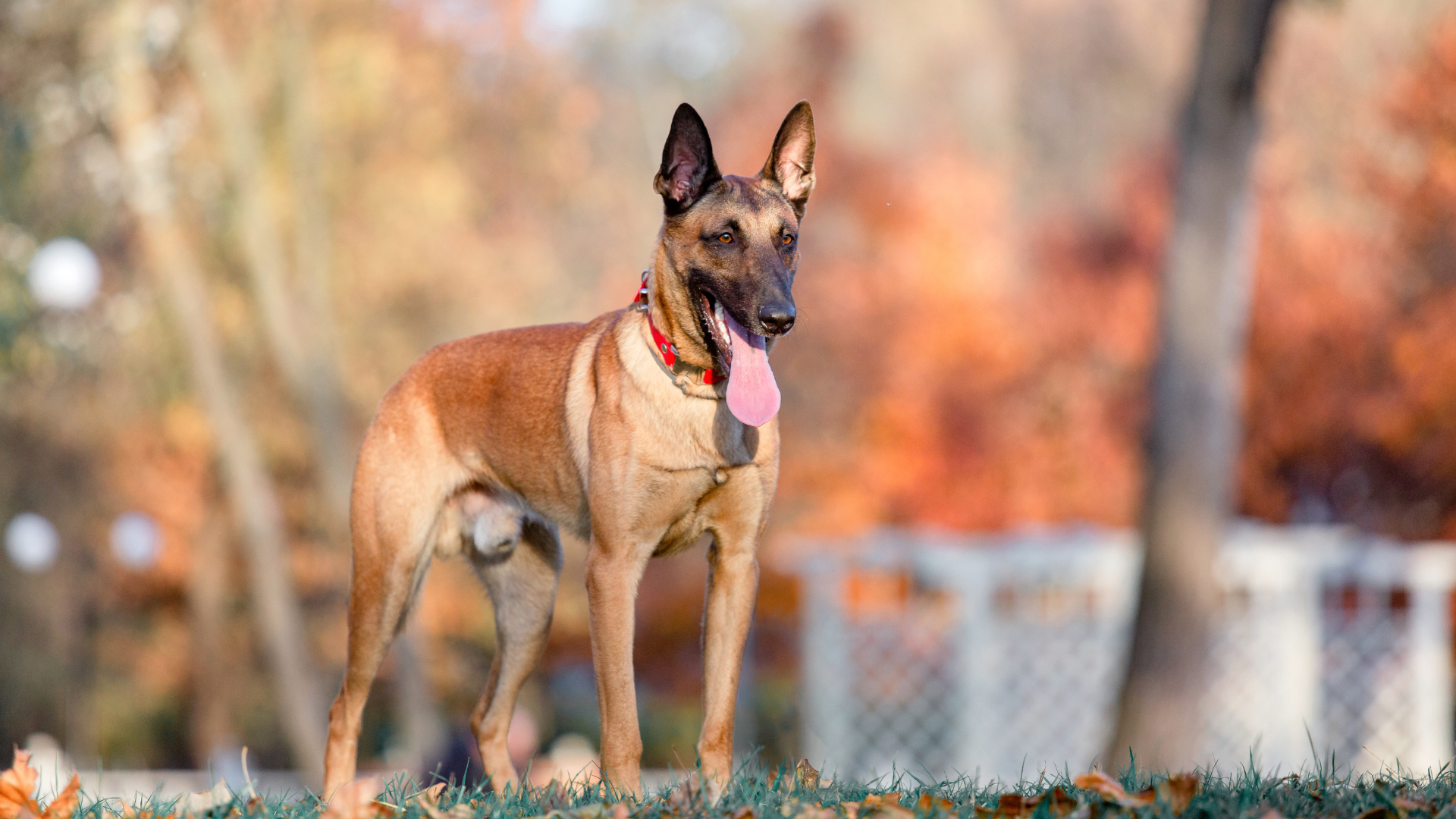
Incorporating Fruits, Vegetables, and Grains
Belgian Malinois can benefit from incorporating fruits, vegetables, and grains into their diet. These food groups can provide essential nutrients and fiber that are important for their overall health.
Benefits of Fruits and Vegetables
Fruits and vegetables are a great source of vitamins, minerals, and antioxidants. Incorporating a variety of different fruits and vegetables into a Belgian Malinois diet can help ensure they receive a range of nutrients. For example, carrots are a good source of vitamin A, while broccoli is high in vitamin C. Berries such as blueberries and raspberries are also a good source of antioxidants, which can help support a healthy immune system.
Choosing the Right Grains
Including grains in a Belgian Malinois diet can provide a source of energy and fiber. Whole grains such as brown rice and whole wheat are a good choice as they provide more fiber and nutrients than refined grains. Sweet potatoes. and potatoes are also a good source of fiber and can be included in a Belgian Malinois diet.
When choosing grains, it's important to ensure they are natural and not heavily processed. Avoid grains that contain added sugars or artificial flavors.
In summary, incorporating fruits, vegetables, and grains into a Belgian Malinois diet can provide essential nutrients and fiber. It's important to choose natural and unprocessed options to ensure they receive the most benefits from these food groups. Please add here my exact focus keywords What Should Belgian Malinois Eat?
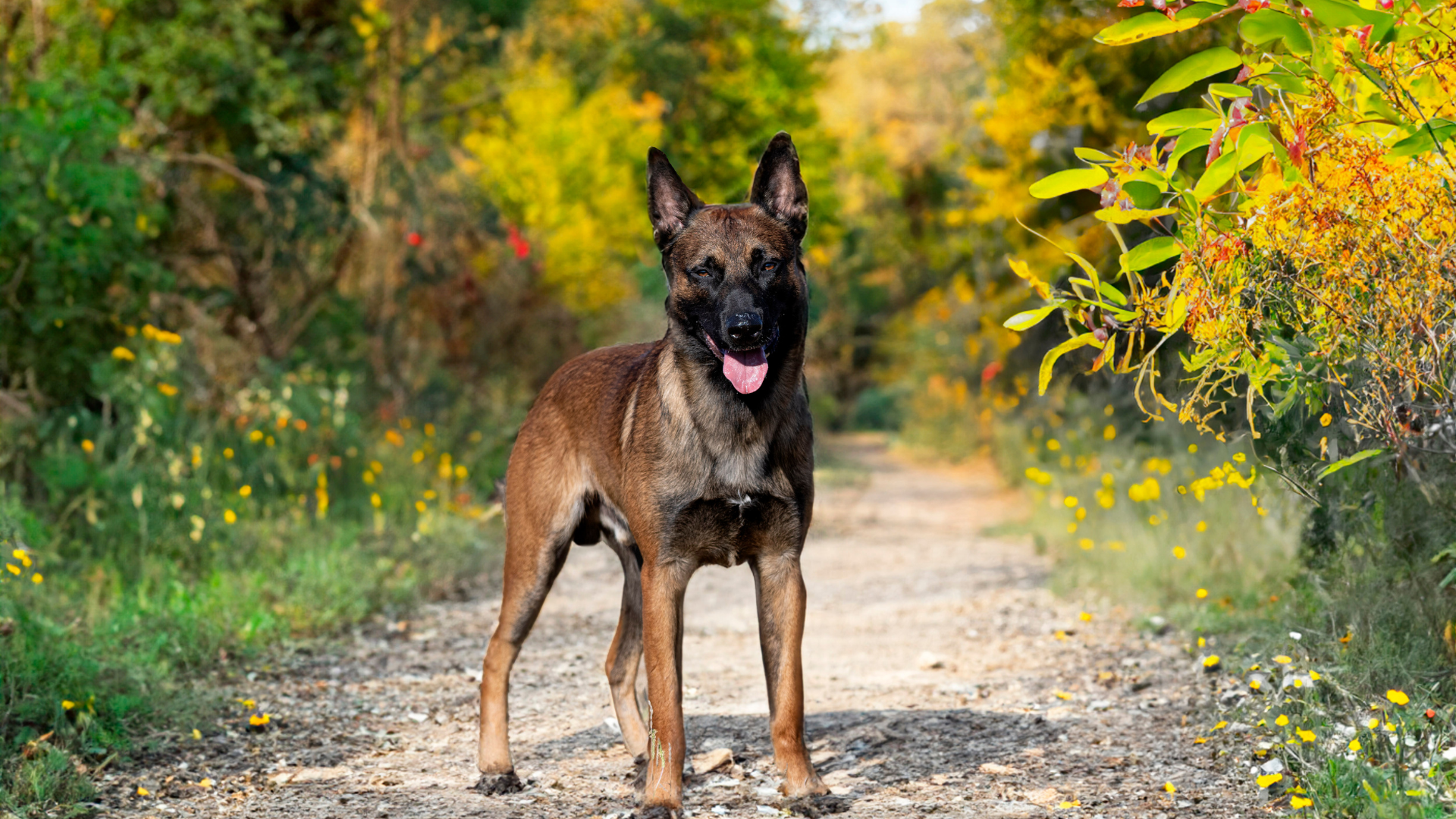
Health Considerations in Belgian Malinois Diet
Belgian Malinois are known for their high energy levels and athletic build. To maintain their health and well-being, it is important to provide them with a balanced and nutritious diet. Here are some health considerations to keep in mind when feeding your Belgian Malinois.
Obesity and Overweight
Belgian Malinois are prone to obesity and being overweight. This can lead to a number of health problems, such as joint issues and digestive problems. To prevent obesity, it is important to monitor their food intake and provide them with regular exercise.
Allergies
Belgian Malinois can be prone to allergies, which can cause skin irritation, digestive problems, and other health conditions. It is important to identify any food allergies your dog may have and avoid feeding them foods that trigger an allergic reaction.
Hip Dysplasia
Hip dysplasia is a common health problem in Belgian Malinois. This condition affects the hip joint and can cause pain and discomfort. To prevent hip dysplasia, it is important to feed your dog a diet that is rich in calcium and fatty acids, such as DHA.
By keeping these health considerations in mind, you can help ensure that your Belgian Malinois stays healthy and happy. If you have any concerns about your dog's diet or health, it is always best to consult with a veterinarian.
Belgian Malinois Feeding Chart
Explore our Belgian Malinois Puppy Food Chart for a clearer understanding.
| Life Stage | Meals Per Day | Food Type | Amount |
|---|---|---|---|
| Puppy (up to 6 months) | 3 to 4 | High-quality puppy food | Follow the food manufacturer's guidelines, adjust according to activity level |
| Adult (6 months to 7 years) | 2 | High-quality adult dog food | Divide daily food intake into two meals, adjust based on weight and activity level |
| Senior (7 years and older) | 2 | Senior-specific dog food | Adjust for lower calorie needs, consult with a vet for specific amounts |
Transitioning Your Belgian Malinois to a New Diet
When transitioning your Belgian Malinois to a new diet, it is important to do so gradually. Abruptly changing your dog's diet can lead to digestive upset and discomfort. The transition process can take anywhere from a few days to a few weeks, depending on your dog's age and how picky of an eater they are.
For puppies, it is recommended to start transitioning to a new diet around 4-6 weeks of age. This is also a good time to introduce solid food. It is important to start with a small amount of the new food mixed in with the old food and gradually increase the amount of new food while decreasing the old food over the course of a week or two.
For adult Belgian Malinois dogs, the transition process can take a bit longer. Start by mixing a small amount of the new food in with the old food and gradually increase the amount of new food while decreasing the old food over the course of a week or two. If your dog is a picky eater, it may take longer to fully transition to the new diet.
It is important to monitor your dog's behavior and bowel movements during the transition process. If you notice any signs of digestive upset, such as vomiting or diarrhea, slow down the transition process or consult with your veterinarian.
Overall, transitioning your Belgian Malinois to a new diet can be a simple and seamless process if done gradually and with care.
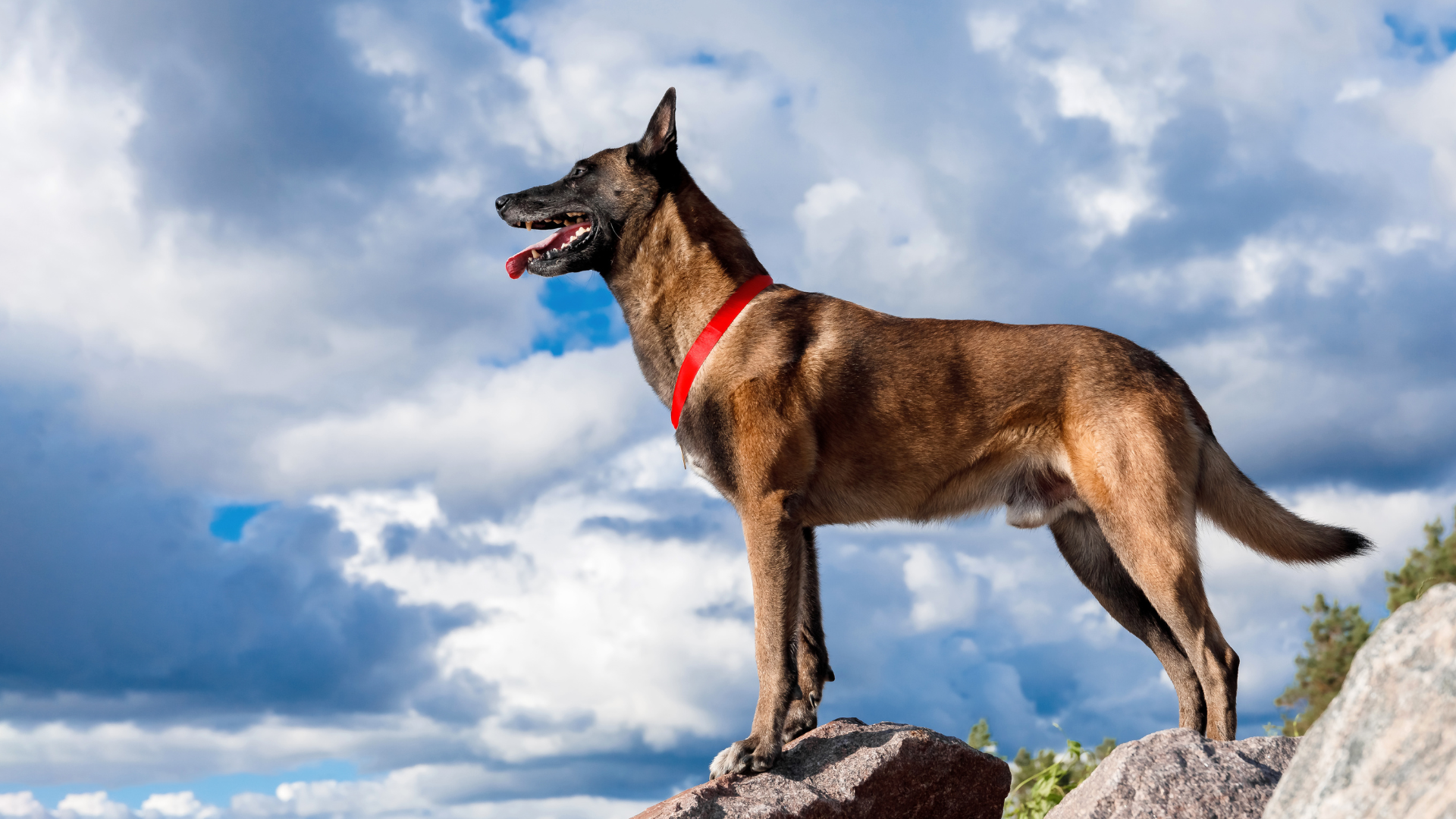
Additional Foods to Include in the Belgian Malinois Diet
Belgian Malinois are active and energetic dogs that require a well-balanced diet to maintain their physical activity and protective nature. In addition to the foods mentioned in the previous section, there are some other foods that can benefit their health.
Fresh fish is an excellent source of protein and healthy fats that can benefit the dog's coat, skin, and body weight. Carbohydrates like sweet potatoes and brown rice can provide energy for physical activity and protect against diseases.
Belgian Malinois can also benefit from a variety of colorful fruits and veggies, such as blueberries, apples, and broccoli, which are rich in vitamins and antioxidants. Yogurt and cheese can be included in small amounts to provide calcium and vitamin A.
Dried fruits like apricots and cranberries can also be added as a healthy snack. However, it's important to avoid foods that contain additives and preservatives, as they can be harmful to the dog's health.
Overall, a well-balanced diet with a combination of proteins, carbohydrates, healthy fats, and vitamins is essential for the Belgian Malinois to maintain their physical activity and protective nature. Please add here my exact focus keywords What Should Belgian Malinois Eat?
Belgian Malinois Food Recommendations
When it comes to Belgian Malinois food recommendations, a high-quality, balanced diet tailored to their energetic and athletic nature is crucial. This breed thrives on a protein-rich diet that supports muscle growth and repair, with a preference for whole meats like chicken, beef, or fish as the primary ingredient. Healthy fats are also vital for sustaining their high energy levels, so look for foods containing omega-3 and omega-6 fatty acids, which promote a glossy coat and healthy skin. Incorporating a mix of fruits and vegetables can provide essential vitamins and antioxidants, aiding in overall health and wellness.
Additionally, considering the dog's age, weight, and activity level is important when selecting the appropriate food to ensure they receive the necessary nutrients to support their active lifestyle. Consulting with a veterinarian can also offer personalized guidance to meet your Belgian Malinois's dietary needs.

Frequently Asked Questions
- What are the best supplements for a Belgian Malinois?
- Belgian Malinois requires a well-balanced diet that includes protein, carbohydrates, vitamins, and minerals. However, supplements can also be beneficial for their overall health. Some of the best supplements for a Belgian Malinois are omega-3 fatty acids, glucosamine, and chondroitin. Omega-3 fatty acids can help with joint health, while glucosamine and chondroitin can help with joint pain and inflammation.
- How much should I feed my 4-month-old Belgian Malinois?
- A 4-month-old Belgian Malinois should be fed four meals per day. The amount of food they should consume depends on their weight, size, and physical activity. Generally, they should be given 0.5 to 1.5 cups of food per day that contains 140-940 kcal of nutrients.
- What is the best dry food for a Belgian Malinois?
- Belgian Malinois requires high-quality dog food that has carbs with a low glycemic index, such as sweet potatoes, peas, and chickpeas. A veterinarian consultation is necessary to determine the optimal amount of carbs for each dog. Some of the best dry food options for Belgian Malinois are Blue Buffalo Life Protection Formula, Orijen Original, and Wellness Core.
- How many calories should a Belgian Malinois consume daily?
- The amount of calories a Belgian Malinois should consume daily depends on their age, weight, size, gender, and physical activity. Generally, an adult Belgian Malinois should consume 1,200 to 1,500 calories per day. However, this amount can vary based on their individual needs.
- What is the best meat to feed a Belgian Malinois?
- Belgian Malinois requires a diet with high-quality animal-based protein sources, such as beef, chicken, turkey, lamb, duck, eggs, and fish. These meats provide essential amino acids that help maintain muscle mass and support overall health.
- Can Belgian Malinois safely consume raw chicken?
- Raw chicken can contain harmful bacteria that can cause illness in dogs, including Belgian Malinois. Therefore, it is recommended to cook chicken thoroughly before feeding it to them. Additionally, it is important to practice good food safety habits when handling and preparing raw chicken.




